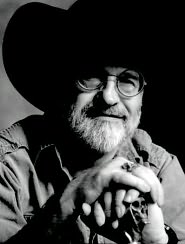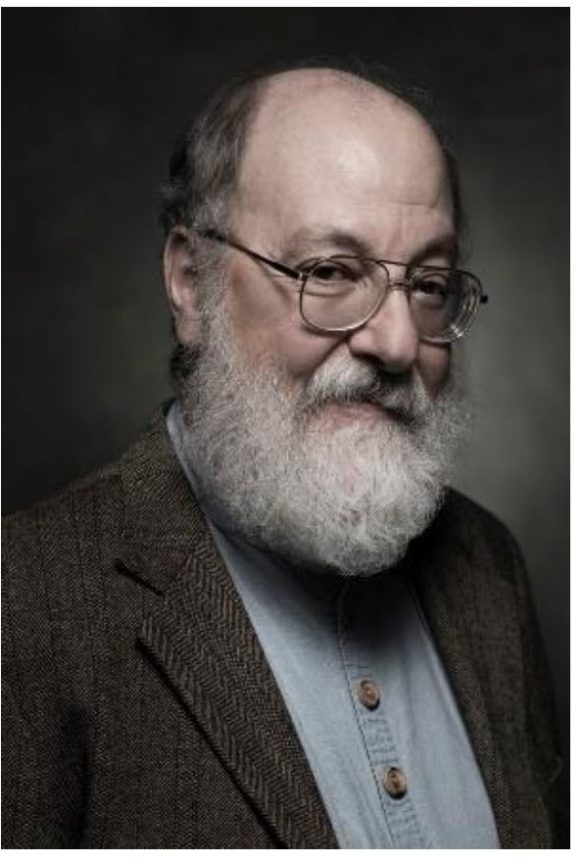



The Libertarian Futurist Society has selected four finalists for the 2023 Hall of Fame Award for Best Classic Fiction.
This year’s finalists – first published between 1978 and 2000 – include novels by the late Poul Anderson and Terry Pratchett, Harry Turtledove and a song by the Canadian rock group Rush.
- Orion Shall Rise, a 1983 novel (Timescape) by frequent Prometheus winner Poul Anderson became a Best Novel finalist. It explores the corruptions and temptations of power and how a free society might survive and thrive after an apocalypse. The story is set in a post-nuclear-war Earth with four renascent civilizations in conflict over the proper role of technology. Anderson focuses on forward-thinking visionaries who dream of reaching for the stars while trying to revive forbidden nuclear technology that destroyed their now-feudal, empire-dominated world. Most intriguing: the depiction of a clearly libertarian society with minimal government operating in formerly western Canada and northwestern United States.
- The Truth, Terry Pratchett’s 2000 novel (HarperCollins) was first nominated in 2001 for Best Novel. It is part of his satirical but historically informed Discworld series and shows the founding by a struggling scribe of the Discworld’s first newspaper using the new printing press in (of course!) the city of Ankh-Morpork, and its publisher’s struggles for freedom of the press during a political crisis. All too timely in its focus on misinformation and its theme of freedom of speech and press, the novel portrays how journalists report the facts (or not) and communicate “the truth” amid pressure from competing political factions.
- “The Trees,” a 1978 song by Rush was released on the Canadian rock group’s album “Hemispheres”. The lyrics are by Neil Peart and the music by Geddy Lee and Alex Lifeson. The song warns against coerced equality in a beast fable – or in this case, a “tree fable.” Peart poetically present a Nature-based fable of envy, “oppression” and misguided revolution motivated by a true-believer ideology of coercive egalitarianism. The survival and individuality of different kinds of trees – both agitating Maples and lofty Oaks – are threatened when a seemingly “noble law” is adopted in the forest to keep the trees “equal by hatchet, axe and saw.”
- Between the Rivers, a 1998 novel (TOR) by Harry Turtledove, tells an alternate-history story about humanity’s attempt to forge its own destiny at the dawn of civilization. Framed as a Bronze Age mythology in a pattern inspired by Julian Jaynes’ “bicameral-mind” hypothesis, the novel revolves around a city ruled by actual gods where men begin to think for themselves and make progress through commerce and mathematics. Among those men are a young merchant with strange ideas upholding free will and independence and challenging traditional cultural assumptions in a struggle for freedom from divine rule.
In addition to the above finalists, the Prometheus Hall of Fame Finalist Judging Committee considered six other nominees: Zelig, a 1983 film written, directed by and starring Woody Allen; Floating Worlds, a 1976 novel by Cecilia Holland; “Primary Education of the Camiroi,” a 1966 short story by R.A. Lafferty; That Hideous Strength, a 1945 novel by C.S. Lewis; Kalin, a 1969 novel by E.C. Tubb; and “The Last Word,” a 2000 story by Harry Turtledove.
The final vote will take place in mid-2024. All Libertarian Futurist Society members are eligible to vote. The award will be presented at a major science fiction convention and/or online.
Nominees may be in any narrative or dramatic form, including prose fiction, stage plays, film, television, other video, graphic novels, song lyrics, or epic or narrative verse; they must explore themes relevant to libertarianism and must be science fiction, fantasy, or related genres.
First presented in 1979 (for Best Novel) and presented annually since 1982, the Prometheus Awards have recognized “outstanding works of science fiction and fantasy that dramatize the perennial conflict between Liberty and Power, favor private social cooperation over legalized coercion, expose abuses and excesses of obtrusive government, critique or satirize authoritarian ideas, or champion individual rights and freedoms as the mutually respectful foundation for peace, prosperity, progress, justice, tolerance, civility, and civilization itself.”

The awards include gold coins and plaques for the winners for Best Novel, Best Classic Fiction (Hall of Fame), and occasional Special Awards.
The Prometheus Award is one of the most enduring awards after the Nebula and Hugo awards, and one of the oldest fan-based awards currently in sf.
Nominations for the 2024 Hall of Fame Award can be submitted to committee chair William H. Stoddard ([email protected]) at any time up to September 30, 2024. All LFS members are eligible to nominate.
More information about the LFS is available at www.lfs.org and the Prometheus blog (lfs.org/blog/).
[Based on a press release.]
Discover more from File 770
Subscribe to get the latest posts to your email.

I find the Prometheus Hall of Fame Award interesting because the list of winners includes works and writers who are fairly diverse ideologically, including liberal and/or left-wing writers rather removed from the support for laissez-faire capitalism associated with “libertarianism”: Sinclair Lewis, George Orwell, Ursula K. Le Guin, Kurt Vonnegut, Harlan Ellison.
Yes, the nominees are always interesting, and not limited to a narrow category of “libertarian authors.” Pratchett is an interesting choice, but there are valid reasons for considering him. Ankh-Morpork is a “one man, one vote” society, where the one man is Lord Vetinari, but Lord V. (unlike a certain other Lord V.) takes a hands-off approach to most things. I love that the creator of the Discworld printing press is named “Goodmountain.”
The broad range of author/finalists is due to the fact that economics is only half of the libertarian range of interests. Having all the wealth in the world is pointless if a person isn’t free to spend it as they choose.
Regards,
Dann
My blog! Holy schnikes! You’d think I’d promote it more.
“The broad range of author/finalists is due to the fact that economics is only half of the libertarian range of interests. Having all the wealth in the world is pointless if a person isn’t free to spend it as they choose.” But all this still relates to economics, no? The other side of libertarianism would seem to be political and civil libertarianism, freedom of speech, etc.–concerns which are also shared by some who aren’t libertarianism in the economic sense, such as the writers I mentioned.
@Carl Rosenberg
From a libertarian perspective, the social and economic perspectives are mutually supporting and therefore inseparable. You can’t have one without the other.
So flip my comment, a person can have all the wealth in the world, but what good is it if they do not have the social freedom to act in a way that is consistent with their personal beliefs/perspectives?
The Prometheus awards pull from many different perspectives because it is more common for a author (or musician – yay Rush!) to productively focus on a single element of individual autonomy. The fact that they do not embrace a broader treatment of the issue should not get in the way of acknowledging that they have created a work that is wonderfully useful in discussing further improvements is society and the human condition.
Regards,
Dann
Whatever it is that hits the fan will not be evenly distributed.